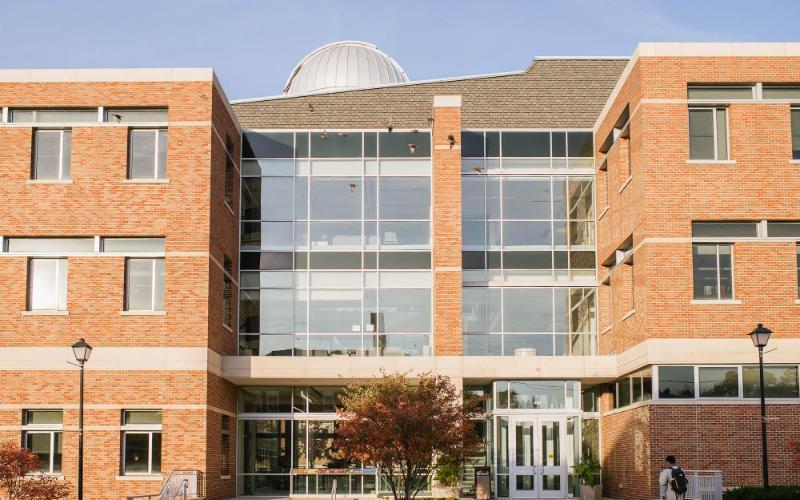February 10, 2023
The new degree options join the existing biology and health science majors offered through the Department of Biological and Health Sciences, opening new doors of opportunity and interdisciplinary connections for STEM undergraduates.

All undergraduate majors in the department will begin their education together in several foundational courses (totaling 20 credits) in biology (including cell biology and genetics) and chemistry. These core courses meet national accreditation standards and set students up for success in their major of choice and future endeavors in a variety of fields including medicine, industry, and academia. Sharing coursework early on in their degree, as well as during the summative and integrative capstone options, also creates space for BHS undergraduates to build lasting connections with students and faculty that teach across all five majors (biology, health science, neuroscience, biochemistry & molecular biology, and conservation & ecological health). The biochemistry & molecular biology major is also co-housed within the BHS department and the Department of Chemistry.
In addition to earning a degree that represents their particular interests, BHS students have the benefit of engaging with a Christian liberal arts curriculum that has been informed by chemistry, environmental science, philosophy, theology, and psychology faculty from across campus.
“Because of Wheaton College’s liberal arts tradition, the work we do in biological and health sciences doesn’t happen in a silo,” said neuroscientist Dr. Nate Thom, Associate Professor and Chair of Biological & Health Sciences and Director of the Neuroscience Program. “For example, while there are many institutions offering neuroscience training, most of that work is extremely reductionistic—not necessarily viewing you or I as a whole person. Our work is integrated in both natural science and the ethics of personhood and what it means to live well, which really puts Wheaton on the map in terms of our approach to studying the brain.”
As part of a faith-integrated program that emphasizes both holistic, intellectual development and hands-on preparation for the field of a student’s choice, BHS undergraduates have the opportunity to engage in onsite, original research with Wheaton’s world-class faculty who hold research grants from the National Science Foundation, the Department of Energy, and the National Institute for Health. Research internships and teaching assistant positions are available throughout the fall and spring semesters, as well as through the summer.
“The award-winning faculty in our Department of Biological and Health Sciences are leading experts in their fields who have chosen to devote time and care to nurture and mentor Wheaton College students in their spiritual formation,” said Provost Karen An-hwei Lee. “Our faculty scientists believe that the study of Scripture and the cultivation of virtues, shaped by Christian tradition, can form the foundations for ethical behavior. We are excited to continue creating space for inclusive excellence in STEM as our professors inspire their students to leverage their unique skill sets in the sciences to serve Christ and his kingdom.”
—Eliana Chow